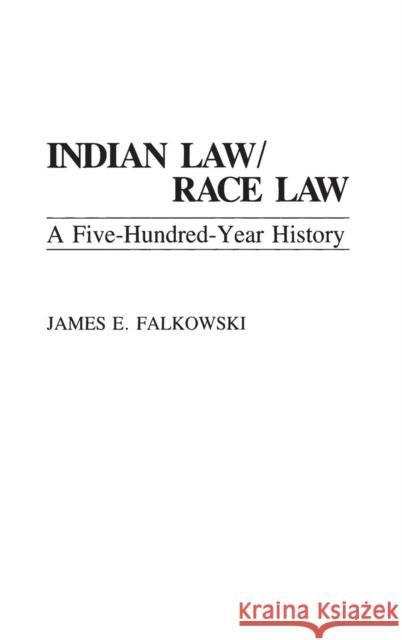Indian Law/Race Law: A Five-Hundred-Year History » książka
Indian Law/Race Law: A Five-Hundred-Year History
ISBN-13: 9780275943189 / Angielski / Twarda / 1992 / 192 str.
This intricate volume reviews the historical development of the discriminatory body of law that applies to the indigenous peoples of the Western Hemisphere, beginning with the papal bull Inter Caetera of 1493 and ending with the recent developments of the United Nations' Working Group on Indigenous Populations. James Falkowski explains how the legal system of the European colonizers, which was later adopted by the European settler population, developed special doctrines that applied only to the indigenous peoples and legalized the erosion of the rights of the vanishing race. Falkowski demonstrates how two systems of law--one applying to civilized peoples, and the other to the backwards races--were devised and justified.The author traces the development of The Sacred Trust of Civilization from its origin in the writings of Spaniard Francisco de Victoria and the Englishman Edmund Burke, through its internationalization in the League of Nations' Native Inhabitants Clause, and the United Nations' Non-Self-Governing Territories provision. He evaluates the exclusion of the indigenous peoples from these protections through the rejection of the Belgian Thesis. Falkowski goes on to review the refinements in the separate body of law that applies to indigenous peoples by the ILO, and recent efforts by the Working Group on Indigenous Populations to remedy this situation. The author also examines the treatment of indigenous peoples by international courts and the United States Supreme Court. He rejects theories justifying overland colonization and proposes the reform of Indian law through the application of international human rights principles. The book contains the complete text of numerous important documents that pertain to the rights of indigenous peoples. Indian Law/Race Law will appeal to historians as well as those interested in Indian law, and the development of international and human rights law.











